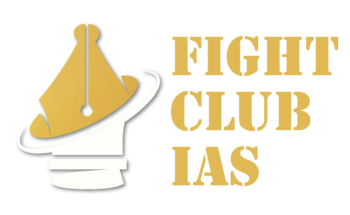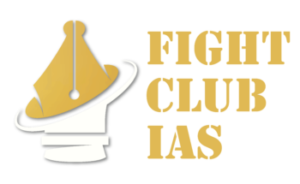Scope of Sociology
Table of Contents
- The term Sociology was coined by Auguste Comte, a French philosopher, in 1839.
- The teaching of sociology as a separate discipline started in 1876 in the United States, in 1889 in France, in 1907 in Great Britain, after World War I in Poland and India, in 1925 in Egypt and Mexico, and in 1947 in Sweden.
- Sociology is the youngest of all the Social Sciences.
- The word Sociology is derived from the Latin word ‘societies’ meaning ‘society’ and the Greek word ‘logos’ are meaning ‘study or science’.
- The etymological meaning of ‘sociology’ is thus the ‘science of society’.
- It can focus its analysis on interactions between teachers and students, between two friends or family members as well as it can also focus on national issues like unemployment, caste conflict, the effect of state policies on forest rights of the tribal population or rural indebtedness or examine global social processes such as:
- the impact of new flexible labor regulations on the working class;
- or that of the electronic media on the young or the entry of foreign universities on the education system of the country.

- What defines the discipline of sociology is not just what it studies (i.e. family or trade unions or villages) but how it studies a chosen field.
- There has been a great deal of controversy regarding the subject matter of sociology. Sociologists of different schools differ in their views.
Two Main Schools of Thought Regarding the Scope of Sociology
|
The Formalistic School
|
The Synthetic School
|
|---|---|
|
The Formalistic school wants to keep the scope of sociology distinct from other social sciences. |
The synthetic school wants to make sociology a synthesis of the social sciences or a general science. |
|
They regard sociology as pure and independent.
|
According to the synthetic school, the scope of sociology is encyclopedic and synoptic. |
Specialistic or Formalistic School
The name is so because sociology is a special science to study society.
George Simmel is the supporter.
Society has form and content – according to him and there can be no society without form and content and they can be separated i.e. form and content. He says sociology only studies the form but not the content.
- Competition – social studies the factor, result and this is the form the area of competition is the content and it is not studied.
Sociology does not study the content because there are other social sciences which study the contents.
- By him Tables 3 types of glass of similar forms fill them with different types of content but this does not change the form of the glass. Then now you take one glass and fill it by 3 different liquids one by one. Now the form does not change and the content too does not change and therefore these forms and contents can be separated.
Similarly, sociology studies the form and if there is a change in the content there is no change in the form and thus in the study.
Thinker’s view about Specialistic or Formalistic School
Simmel’s view
- According to Simmel, the distinction between Sociology and other special sciences is that it deals with the same topics as they from a different angle—from the angle of different modes of social relationships.
- Social relationships, such as competition, subordination, division of labour etc. are exemplified in different spheres of social life such as economic, the political and even the religious, moral or artistic but the business of Sociology is to disentangle these forms of social relationships and to study them in abstraction.
- Thus, according to Simmel, Sociology is a specific social science which describes, classifies, analyses and delineates the forms of social relationships.
Max Weber’s view
- Max Weber also makes out a definite field for Sociology.
- According to him, the aim of Sociology is to interpret or understand social behaviour.
- But social behaviour does not cover the whole field of human relations. Indeed, not all human inter-actions are social.
- For instance, a collision between two cyclists is in itself merely a natural phenomenon, but their efforts to avoid each other or the language they use after the event constitute true social behaviour.
- Sociology is thus, according to him, concerned with the analysis and classification of types of social relationships.
Von Wiese’s view
- According to Von Wiese, the scope of Sociology is the study of forms of social relationships.
- He has divided these social relationships into many kinds.
Vierkandt’s view
- He defined social as, Social is the study of the ultimate form of mental and psychic relationship which link one to another’.
- He gives important to emotional relationship.
Tonnie’s view
- He believes Sociology to be pure science. He said that Sociology is pure and independent.
- He divided society into two groups 1. Society and 2. Community.
- He said society is urban society whereas community is rural society and in Sociological terms he called it as Gescelschaft and Gescelschaft.
Criticism of Specialistic or Formalistic School
- Sociology is a science and it’s new in origin and so not a pure science.
- A. Sorokin says that it isn’t necessary to say it is a science and not correct to study scientifically.
- What is Society? There are difference aspects in society ans all these combined make society. These different social sciences are studied in different ways or by other social sciences. These social sciences are specialized in studying these aspects.
- George Simmel separated forms from content but this too is not correct. It may be correct in other sciences such as the physical sciences. If the form changes the content also changes. There is a difference in the ideas of the supporters of this group or school.
Synthetic school
The school of thought believes that sociology should study society as a whole and not confine itself to the study of only limited social problems.
The synthetic school wants to make sociology a synthesis of the social sciences or a general science, Durkheim, Hob-house and Sorokin subscribe to this view.
Thinker’s view about Synthetic school
Durkheim’s view
- “Sociology is a science of collective representation”. He believes in the collection of people in society.
- When there is collection there must be wider scope for collective representation there must be majority of people hence it will be social facts.
- Since it has a social fact, they are instrumental in guiding and controlling the behavior of society. (Those collective symbols accepted by the majority and what they say become social facts. These will help).
- These social facts will later become a part of society. When we study a collective representation the whole picture of society comes before us.
Sorokin’s view
- “Sociology is the generalizing science”. He is the profounder of systematic study.
- In his book ‘contemporary sociology’ he observes that social is a general science.
- It studies the general characteristics of the society of the relationship of social and non-social phenomena.
- He constructs a formula to describe his theory.
- Sociology- a, b, c
- Economics – a, b, c, d, e, f
- Political Science – a, b, c, g, h, i
- Religion – a, b, c, L, M, N
- Constitutional – a, b, c, n, y, Z A, b, c, are found in all social sciences.
Hobhouse’s view
- “Social is the synthesis of various social sciences”. He means social is a general study which studies society as a whole from all aspects i.e. the combination of all social sciences – Sociologist must pursue his study from a particular part of society (social friend).
- When he studies thus, he must interconnect his result with the results arrived from other social sciences and then he should interpret society as a whole.
Ginsberg’s view
- Ginsberg has summed up the chief functions of sociology as follows.
- Firstly, Sociology seeks to provide a classification of types and forms of social relationships especially of those which have come to be defined institutions and associations.
- Secondly, it tries to determine the relation between different parts of factors of social life, for example, the economic and political, the moral and the religious, the moral and the legal, the intellectual and the social elements.
- Thirdly, it endeavours to disentangle the fundamental conditions of social change and persistence and to discover sociological principles governing social life.
Thus, the scope of Sociology is very wide. It is a general science but it is also a special science. As a matter of fact, the subject matter of all social sciences is society. What distinguishes them from one another is their viewpoint.
Thus, economics studies society from an economic viewpoint; political science studies it from political viewpoint while history is a study of society from a historical point of view Sociology alone studies social relationships and society itself.
MacIver correctly remarks, what distinguishes each from each is the selective interest.
Green also remarks, “The focus of attention upon relationships makes Sociology a distinctive field, however closely allied to certain others it may be.”
Sociology studies all the various aspects of society such as social traditions, social processes, social morphology, social control, social pathology, effect of extra-social elements upon social relationships etc.
Actually, it is neither possible nor essential to delimit the scope of sociology because, this would be, as Sprott put it, “A brave attempt to confine an enormous mass of slippery material into a relatively simple system of pigeon holes.”
Changing nature of Scope of Sociology
The scope of sociology has evolved significantly from its origins in the 19th century, shaped by changing social realities.
Initially, sociology focused on understanding large-scale social structures, such as industrialization, capitalism, and social order.
Early thinkers like Auguste Comte and Émile Durkheim emphasized macro-level phenomena, seeking universal laws to explain societal stability and progress.
By the mid-20th century, sociology expanded its scope, influenced by structural functionalism and symbolic interactionism.
Talcott Parsons’ functionalism viewed society as a system of interdependent parts, while micro-level theories like symbolic interactionism explored everyday interactions and meaning-making.
The discipline also began to specialize, with subfields such as rural and urban sociology, demography, and education.
In the post-1960s era, sociology shifted towards critical perspectives, including Marxism, feminism, and critical race theory, emphasizing power, inequality, and social justice.
This period marked the study of race, gender, class, and sexuality, reflecting the rise of social movements.
The late 20th century brought globalization and postmodernism, challenging traditional boundaries and focusing on transnational phenomena, cultural identities, and global inequalities.
Sociology increasingly addressed global migration, environmental issues, and the impact of neoliberal capitalism.
In the 21st century, the digital revolution expanded the scope further, introducing digital sociology. This field explores how technology, social media, and algorithms shape human interaction, identity, and power structures.
Contemporary sociology is also more interdisciplinary, engaging with fields like environmental science and political economy, while emphasizing decolonization and the inclusion of non-Western perspectives.
Hence sociology’s scope has grown to include both macro- and micro-level analyses, integrating diverse, global, and digital phenomena that reflect the complexities of the modern world.
Previous Year Questions
- Sociology is pre-eminently study of modern societies. Discuss (2016)
- In the context of globalisation, has the scope of sociology been changing in India? Comment. (2020)
Important Keywords
Auguste Comte, Specialistic or Formalistic School, George Simmel, Max Weber, Von Wiese, P.A. Sorokin, Synthetic school, Durkheim, Hobhouse, Ginsberg, MacIver, Changing nature, Talcott Parsons, Rural and Urban sociology, Globalization and Postmodernism, Digital Sociology.


